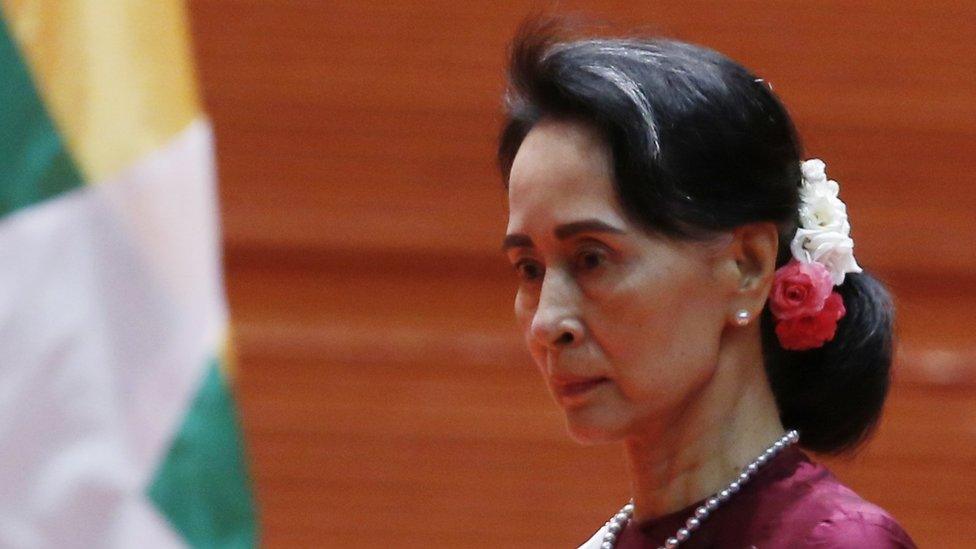Rohingya crisis: 'About 60 dead' in boat capsize
- Published
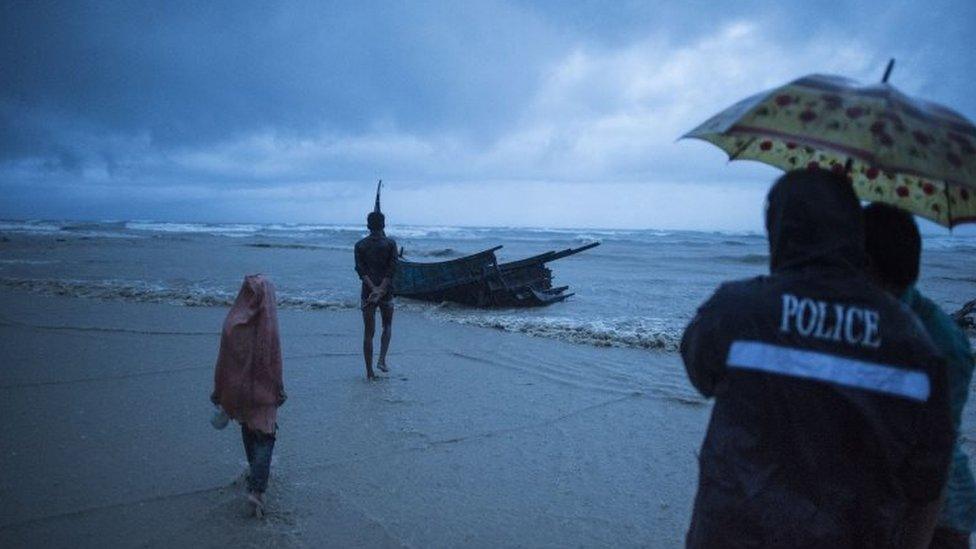
The boat capsized a short distance from the coast near the Bangladesh city of Cox's Bazar
About 60 people are now believed to have died when a boat carrying Rohingya Muslims fleeing violence in Myanmar capsized off Bangladesh, the UN says.
The boat overturned in rough seas late on Thursday.
A UN spokesman said 23 people were now confirmed dead and 40 more were "missing and presumed drowned".
Dozens of Rohingya have already died trying to cross into Bangladesh amid a military crackdown in Myanmar's Rakhine state.
Violence erupted in Rakhine on 25 August when Rohingya militants attacked security posts, triggering a military crackdown.
More than half a million Rohingya - a mostly Muslim minority who are widely disliked in Myanmar and denied citizenship - have fled to Bangladesh since then.
Those who have fled accuse Myanmar's military, backed by Buddhist mobs, of using a brutal campaign of killings and village burnings to try to drive them out. The military rejects the allegations, saying it is targeting Rohingya militants.
The Rohingya have been making their way to Bangladesh across the Naf river that forms the border or up the coast, often on rickety boats.
International Organisation for Migration spokesman Joel Millman said the boat that capsized was carrying about 80 people, according to survivors.
"Survivors described being at sea all night, having no food," he said.
Several children were among the dead. One survivor told Reuters news agency that his wife, two daughters and a grandson had died. He said they had decided to leave Rakhine after armed Buddhists took their livestock and food.
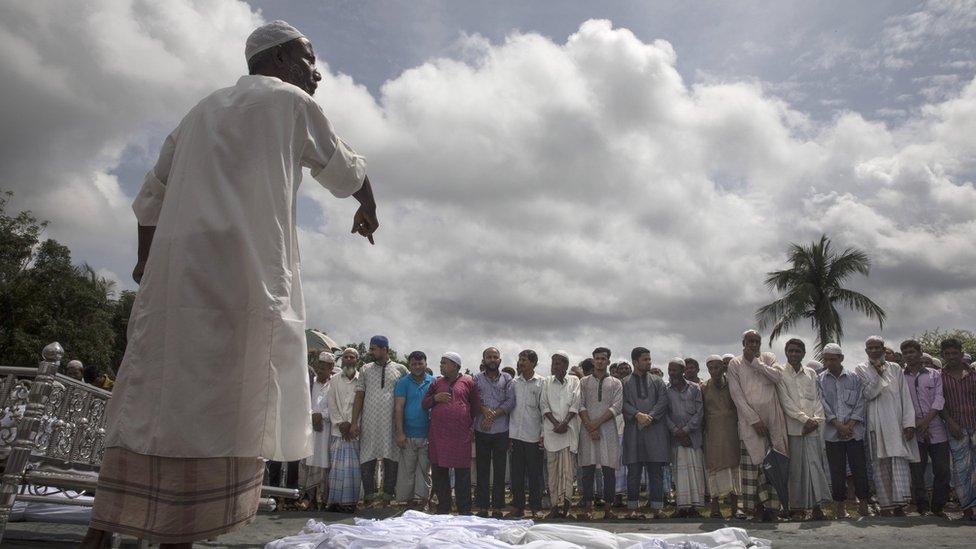
Prayers were said over the bodies of those who died in the capsize
Myanmar's government has rejected comments by UN officials that it is engaged in ethnic cleansing in Rakhine.
But on Thursday US Ambassador to the UN Nikki Haley called on countries currently providing weapons to Myanmar's government to stop doing so until "sufficient accountability measures" were in place.
"Those who have been accused of committing abuses should be removed from command responsibilities immediately and prosecuted for wrongdoing," she said.
Her comments came after UN Secretary General Antonio Guterres told the General Assembly that violence in Myanmar had spiralled into "a humanitarian and human rights nightmare".
He also called for better access to conflict-hit northern Rakhine - something which is currently tightly restricted.
UN officials had been due to make their first visit there since the conflict erupted on Thursday on a government-run trip, but it was cancelled.

- Published19 September 2017
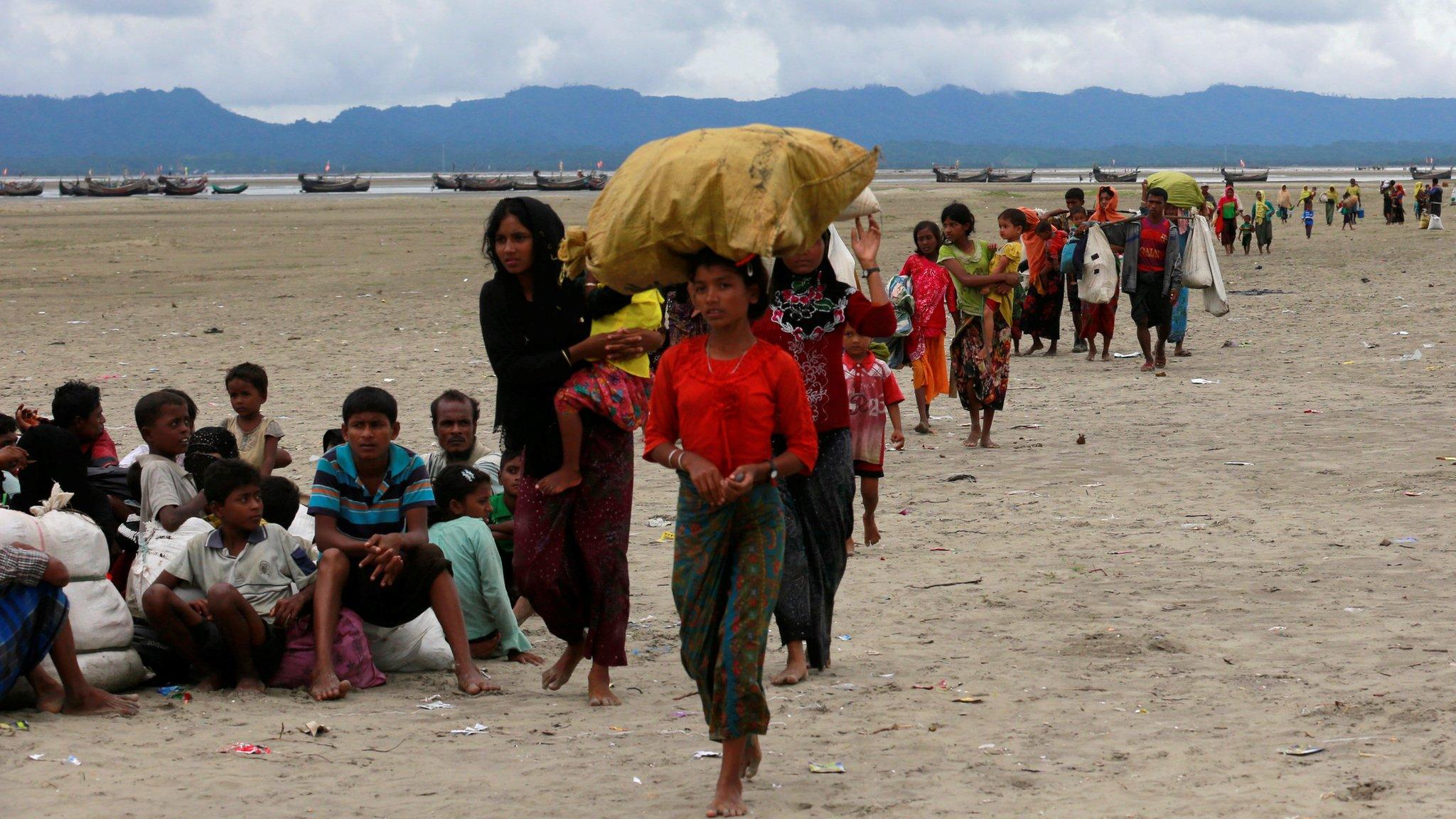
- Published11 September 2017
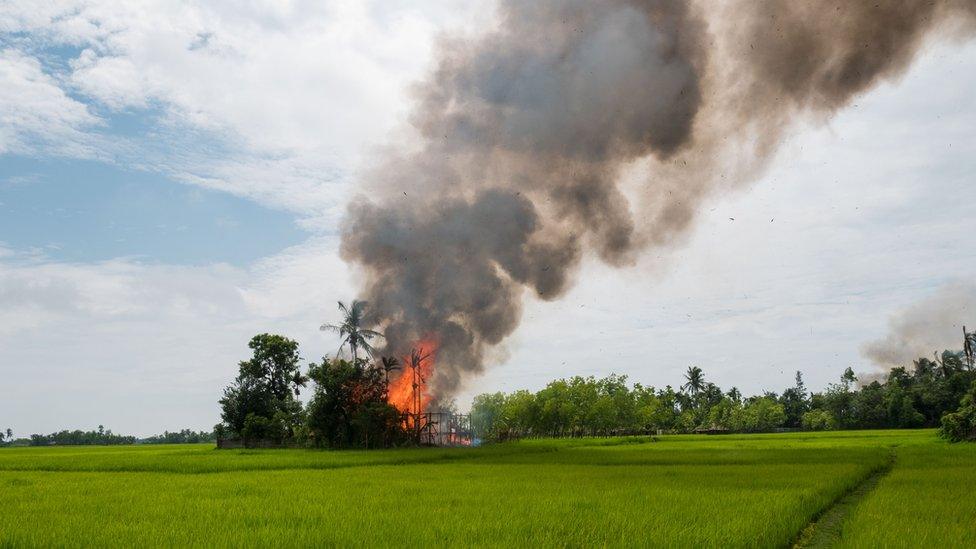
- Published7 September 2017
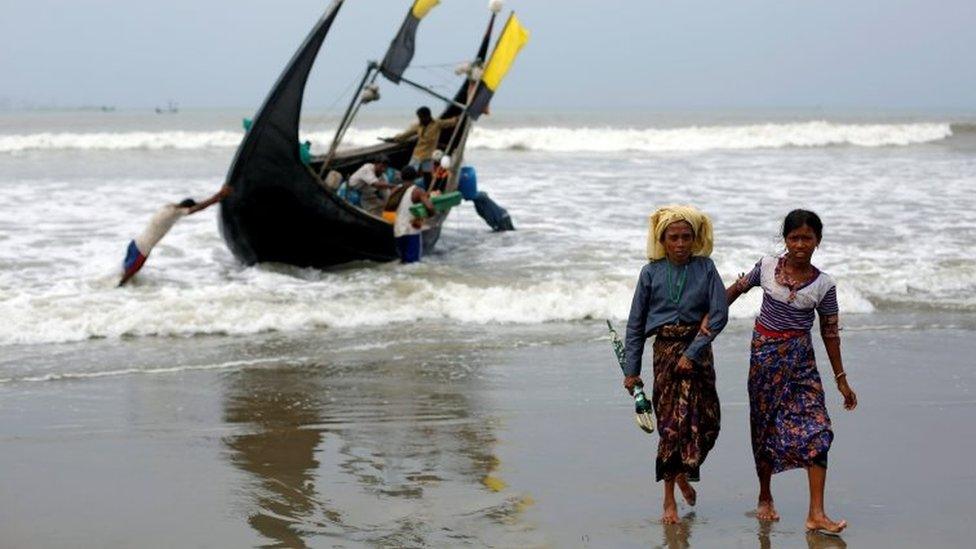
- Published6 September 2017
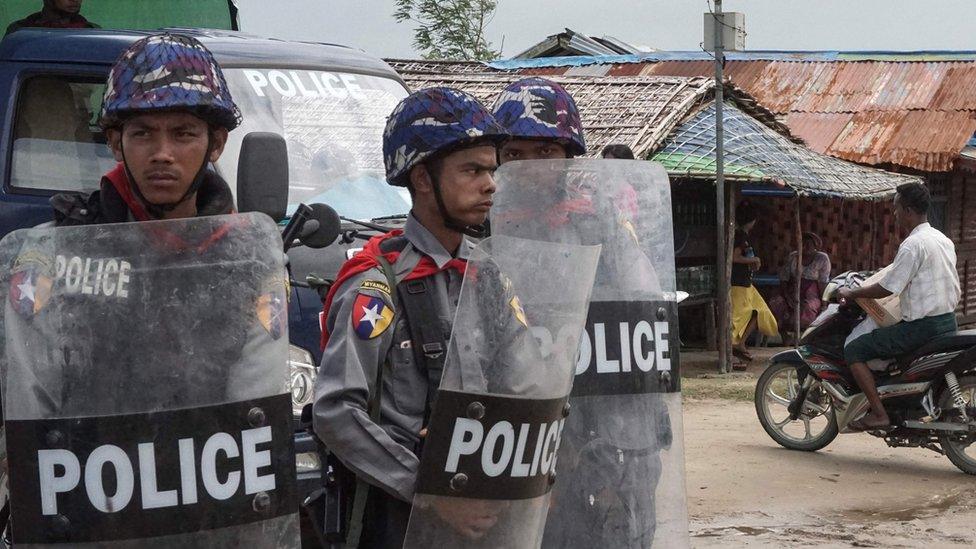
- Published19 September 2017
